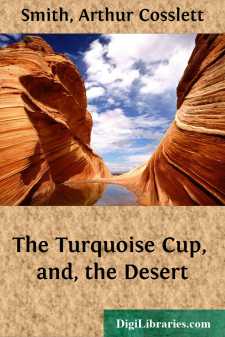Categories
- Antiques & Collectibles 13
- Architecture 36
- Art 48
- Bibles 22
- Biography & Autobiography 816
- Body, Mind & Spirit 145
- Business & Economics 28
- Children's Books 17
- Children's Fiction 14
- Computers 4
- Cooking 94
- Crafts & Hobbies 4
- Drama 346
- Education 58
- Family & Relationships 59
- Fiction 11834
- Foreign Language Study 3
- Games 19
- Gardening 17
- Health & Fitness 34
- History 1378
- House & Home 1
- Humor 147
- Juvenile Fiction 1873
- Juvenile Nonfiction 202
- Language Arts & Disciplines 89
- Law 16
- Literary Collections 686
- Literary Criticism 179
- Mathematics 13
- Medical 41
- Music 40
- Nature 179
- Non-Classifiable 1768
- Performing Arts 7
- Periodicals 1453
- Philosophy 66
- Photography 2
- Poetry 897
- Political Science 203
- Psychology 45
- Reference 154
- Religion 516
- Science 126
- Self-Help 85
- Social Science 82
- Sports & Recreation 34
- Study Aids 3
- Technology & Engineering 59
- Transportation 23
- Travel 463
- True Crime 29
Our website is made possible by displaying online advertisements to our visitors.
Please consider supporting us by disabling your ad blocker.
The Turquoise Cup, and, the Desert
Description:
Excerpt
THE TURQUOISE CUP
The Cardinal Archbishop sat on his shaded balcony, his well-kept hands clasped upon his breast, his feet stretched out so straight before him that the pigeon, perched on the rail of the balcony, might have seen fully six inches of scarlet silk stocking.
The cardinal was a small man, but very neatly made. His hair was as white as spun glass. Perhaps he was sixty; perhaps he was seventy; perhaps he was fifty. His red biretta lay upon a near-by chair. His head bore no tonsure. The razor of the barber and the scythe of Time had passed him by. There was that faint tinge upon his cheeks that comes to those who, having once had black beards, shave twice daily. His features were clearly cut. His skin would have been pallid had it not been olive. A rebellious lock of hair curved upon his forehead. He resembled the first Napoleon, before the latter became famous and fat.
The pigeon's mate came floating through the blue sky that silhouetted the trees in the garden. She made a pretence of alighting upon the balcony railing, sheered off, coquetted among the treetops, came back again, retreated so far that she was merely a white speck against the blue vault, and then, true to her sex, having proved her liberty only to tire of it, with a flight so swift that the eye could scarcely follow her, she came back again and rested upon the farther end of the balcony, where she immediately began to preen herself and to affect an air of nonchalance and virtue.
Her mate lazily opened one eye, which regarded her for a moment, and then closed with a wink.
"Ah, my friends," said the cardinal, "there are days when you make me regret that I am not of the world, but this is not one of them. You have quarrelled, I perceive. When you build your nest down yonder in the cote, I envy you. When you are giving up your lives to feeding your children, I envy you. I watch your flights for food for them. I say to myself, 'I, too, would struggle to keep a child, if I had one. Commerce, invention, speculation—why could I not succeed in one of these? I have arrived in the most intricate profession of all. I am a cardinal archbishop. Could I not have been a stockbroker?' Ah, signore and signora," and he bowed to the pigeons, "you get nearer heaven than we poor mortals. Have you learned nothing—have you heard no whisper—have you no message for me?"
"Your eminence," said a servant who came upon the balcony, a silver tray in his hand, "a visitor."
The cardinal took the card and read it aloud—"The Earl of Vauxhall."
He sat silent a moment, thinking. "I do not know him," he said at length; "but show him up."
He put on his biretta, assumed a more erect attitude, and then turned to the pigeons.
"Adieu," he said; "commercialism approaches in the person of an Englishman. He comes either to buy or to sell. You have nothing in common with him. Fly away to the Piazza, but come back tomorrow. If you do not, I shall miss you sorely."
The curtains parted, and the servant announced, "The Earl of Vauxhall."
The cardinal rose from his chair....


